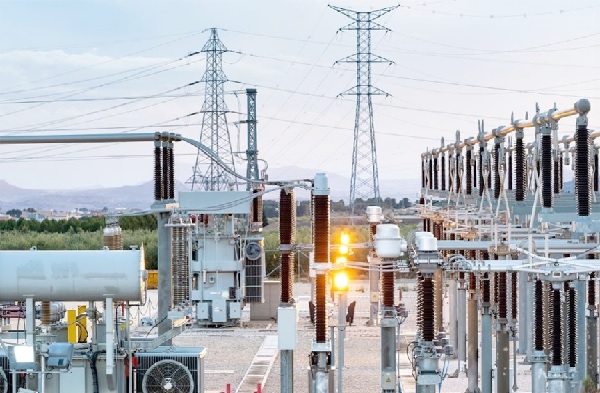The IMF has warned that Ghana's energy sector is projected to face a significant shortfall of $2.2 billion by the end of the year.
This financial strain is attributed to mounting losses at the Electricity Company of Ghana (ECG), delayed tariff adjustments and rising power generation costs.
The IMF's revelation has raised concerns about the long-term sustainability of energy sector financing and the government's fiscal consolidation efforts under the Extended Credit Facility (ECF) arrangement.
Crux of problem
The ECG continues to post large commercial and technical losses, while delays in adjusting electricity tariffs have exacerbated the sector's structural imbalances.
The volatile exchange rate and elevated production costs have further compounded the issue. Despite the imposition of taxes on petroleum consumers, analysts warn that the country's ballooning energy sector debt is unlikely to subside anytime soon.
Persistent revenue shortfalls and arrears accumulation continue to weigh heavily on public finances, undermining the government's efforts to stabilise the economy.
The energy sector's financial woes are further complicated by the ECG's struggles to collect revenue from consumers.
The company's technical and commercial losses are a significant drain on its finances, and the delayed tariff adjustments have reduced its ability to recover costs.
The situation is dire, and immediate action is needed to prevent a complete collapse of the energy sector.
Government's response
In the 2025 Budget, the government earmarked GH¢27.1 billion (approximately US$1.7 billion) to cover the projected shortfall.
However, this allocation assumes that key policy actions will be implemented to stem the financial haemorrhage.
These include the resumption of quarterly electricity tariff adjustments, the rollout of the Energy Sector Recovery Programme (ESRP), and the completion of a multi-year tariff assessment (MYTO) by end-September 2025—a structural benchmark under the IMF programme.
The government has also taken steps to improve cost recovery in the power sector. The Public Utilities Regulatory Commission (PURC) announced a 14.75 per cent increase in electricity tariffs in April 2025, which is expected to help the ECG recover some of its costs.
Additionally, the government has approved a plan to open up power distribution to private sector participation, which could help improve operational efficiency and reduce systemic losses.
Cash waterfall concerns
The IMF has raised concerns about the Cash Waterfall Mechanism (CWM), the framework used to distribute ECG's revenue across stakeholders.
The Fund noted major deviations from expected allocations, with significant underpayments to some Independent Power Producers (IPPs). According to the 2024 Revenue/Collection Accounts Validation Report, ECG declared GHS5.3 billion in collections, but actual payments under the CWM amounted to only GHS3.9 billion.
The CWM is a critical component of the energy sector's financial architecture, and its dysfunction has significant implications for the sector's stability.
The IMF's concerns highlight the need for urgent reforms to ensure that the CWM is functioning effectively and efficiently.
While the IMF acknowledged some progress in addressing long-standing issues within the energy sector, it emphasised that structural inefficiencies and revenue collection bottlenecks must be urgently tackled to stabilise the sector.
The energy sector's financial fragility remains one of the key downside risks to Ghana's economic recovery efforts, particularly as the government balances social spending commitments, debt restructuring targets and IMF programme conditionalities.
The government and stakeholders must work together to address these challenges and ensure the long-term sustainability of the energy sector.
This will require a comprehensive approach that addresses the sector's technical, commercial and financial challenges. With the right policies and reforms, Ghana can stabilise its energy sector and promote economic growth and development.
